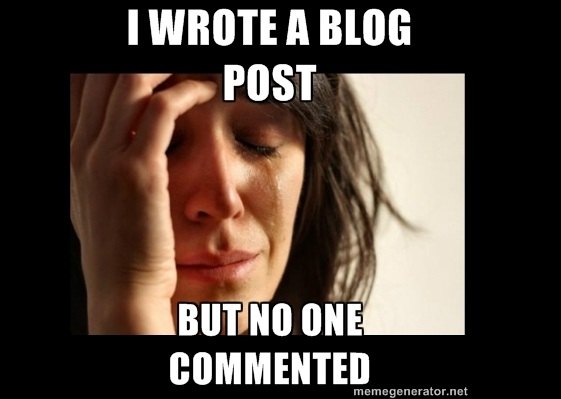Housekeeping: Popular Science Closes The Book On Reader Comments

Comments can be bad for science. That’s why, here at PopularScience.com, we’re shutting them off.
Well alright then!
A politically motivated, decades-long war on expertise has eroded the popular consensus on a wide variety of scientifically validated topics. Everything, from evolution to the origins of climate change, is mistakenly up for grabs again. Scientific certainty is just another thing for two people to “debate” on television. And because comments sections tend to be a grotesque reflection of the media culture surrounding them, the cynical work of undermining bedrock scientific doctrine is now being done beneath our own stories, within a website devoted to championing science.
I know what you’re wondering. What is TTAC’s position on evolution? It’s simple: we think the Evo IX was the best of the series, mostly because the variable valve timing was nice and the current car is kinda chunk-ayyyy. But if you want to argue for that double-clutched, overheating pig, you’re free to do so in our comments section.
We’re a few years now into “Web 2.0” and there’s still no overarching consensus on what to do with reader comments. Should they be prohibited? Edited? Monetized? Sold? Republished? What about the commenters themselves? When your humble E-I-C pro tem took the reins, we un-banned everyone and we’ve yet to hand out a single red card since that day. There’s been some pretty rough-and-tumble stuff between our readers, but I’d like to think that so far nobody has had their feelings hurt beyond the possibility of repair.
I’m deeply suspicious of any website that doesn’t allow its readers a chance to discuss its claims/assertions/comparison tests/bizarre stories of press-trip liaisons/whatevs. While I can understand the concerns that the editors at Popular Science might be having, surely the answer is not to enforce monologue on their pages. When you won’t let your readers criticize you, there always has to be the sneaky suspicion that it’s because you’re lying or misrepresenting something and you don’t want to have your pants pulled down on your own website.
But even if that is the answer for PopSci, it’s not the answer for us. We believe in the power and the voice of the Best&Brightest. And while we’re at it, now’s a good time to reiterate that the current editorial team considers commenter and reader data to be sacred. We will not share or disclose your identifying or personal information on these pages or anywhere else, now or in the future. We’re working to earn and justify your trust.
As always, we ask that you treat fellow TTACers with dignity and respect, even if they are, like, totally wrong about the longevity of General Motors ZZ4 crate motors or the wheelbase of the Peugeot 505 SW8 Estate. In exchange, we’ll continue to leave the banhammer in the recycle bin. (The “dunce cap” was taken out back and burned to ashes.) And, as always, we’re grateful for your participation and opinions, even (especially?) where they disagree with ours.

More by Jack Baruth
Latest Car Reviews
Read moreLatest Product Reviews
Read moreRecent Comments
- ToolGuy I am slashing my food budget by 1%.
- ToolGuy TG grows skeptical about his government protecting him from bad decisions.
- Calrson Fan Jeff - Agree with what you said. I think currently an EV pick-up could work in a commercial/fleet application. As someone on this site stated, w/current tech. battery vehicles just do not scale well. EBFlex - No one wanted to hate the Cyber Truck more than me but I can't ignore all the new technology and innovative thinking that went into it. There is a lot I like about it. GM, Ford & Ram should incorporate some it's design cues into their ICE trucks.
- Michael S6 Very confusing if the move is permanent or temporary.
- Jrhurren Worked in Detroit 18 years, live 20 minutes away. Ren Cen is a gem, but a very terrible design inside. I’m surprised GM stuck it out as long as they did there.


































Comments
Join the conversation
I'm beginning to see why Popular Science deemed it necessary to ax the comments.
Jack I think you draw parallels where none exist at all. Comments are great here but the tone of the site is not the same and subjects are typically not those that really fire people up. I can see how comments are totally irrelevant to what PopSci is doing. You don't have to go far on the Internets to see that tribal knowledge has made a real comeback with the rise of Internet commentary. A bunch of idiots with a "consensus" does not pass for actual knowledge or moving the conversation on to a higher level. Good for PopSci for choosing not promote that, however imperfect shutting the comments down will be. I myself have chosen to limit my reading and writing of Internet Commentary. Today everyone has an opinion or thought that needs to be spewed out for everyone to see. You can waste your whole day on that, and start again tomorrow. Or you could actually do something productive with your time.